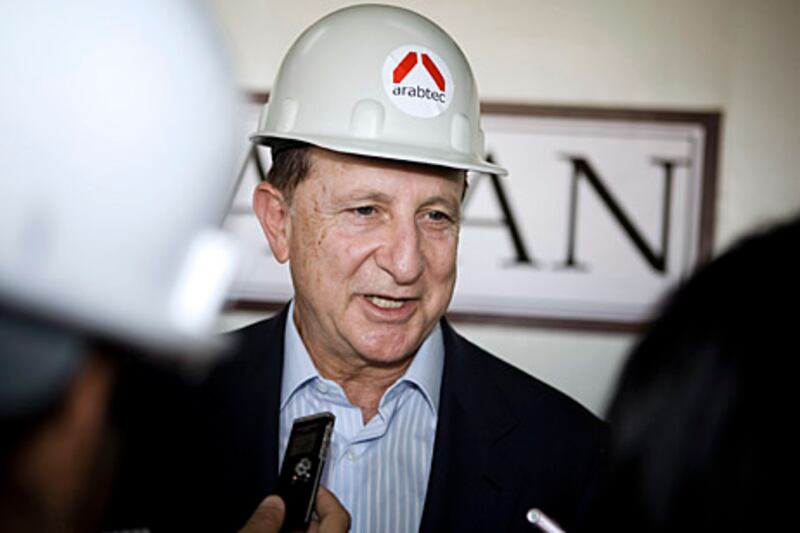Riad Kamal, the chief executive of Arabtec Holding, yesterday dismissed his six-month share trading ban as "trivial" and "totally unnecessary".
Mr Kamal said there had been no intention on his part to benefit from three sales of stock that the country's market regulator flagged as violations of rules on insider trading.
The Emirates Securities and Commodities Authority (SCA) imposed a six-month ban on Tuesday that prevents Mr Kamal from trading shares on the country's exchanges.
Mr Kamal said in a statement: "Typically, investors buy shares ahead of good news and sell them afterwards. In this case, the selling programme is happening automatically as scheduled regardless of the timing of good news. This clearly shows that there was no intention to benefit from the upcoming announcements."
Mr Kamal sold shares in Arabtec Holding on three occasions in May 2009 ahead of announcements by the company that it had won contracts, according to a letter sent to him by the SCA and seen by The National.
The SCA said it was taking the action against Mr Kamal because he traded stock during the 10 working day period before the announcements, which is prohibited under market rules.
On May 10 2009, the same day as Mr Kamal's last trade, Arabtec announced a Dh1.6 billion (US$436 million) contract to build The Nation Towers in Abu Dhabi for International Capital Trading. On May 13, Arabtec announced a Dh71m contract from Emirates Aluminium.
The SCA also said Mr Kamal had received a warning on March 11 2009 concerning prior violations.
Yesterday, Mr Kamal called the entire episode "trivial" and "totally unnecessary". "I have the apology I wanted from the right places and that's the end of it," he said.
In a letter his office sent to several businessmen in the UAE, he said that in 2009 he had begun a "scheduled routine selling programme of his shares as part of a long-term plan to diversify his holdings from an estate planning perspective".
The SCA "noticed the selling programme and is analysing the transactions in light of the fact that Arabtec announced good news in the press within the 10-days limit", he wrote.
Arabtec shares rose after all three transactions, according to an analysis of the stock's performance.
The stock closed at Dh2.16 on May 4, 2009, the date of the first transaction. It rose to Dh2.23 the following day when Mr Kamal made the second sale. By the time of the third sale on May 10, Arabtec was trading at Dh2.58.
The third sale came at a price 19.4 per cent higher than the first. But Arabtec shares continued to rise. The stock reached Dh3.18 on June 14, 2009, and climbed to a peak of Dh3.71 four months later.
The stock has since fallen to Dh1.98, however, less than the price at which Mr Kamal sold his holdings in 2009.
Based on closing prices, Mr Kamal sold more than Dh26m of shares.
The Abu Dhabi Securities Exchange (ADX) declined to comment yesterday, and the Dubai Financial Market (DFM) deferred to the SCA for comment.
Ghannam Bati al Mazroui, the chief of the operations and control department at ADX, said it was "normal practice" to suspend people who violate regulations. The last suspension before the action taken against Mr Kamal occurred in the last quarter of last year, Mr al Mazroui said.
Officials at the SCA did not respond to requests for comment about the case.
MORE: Ban on Riad Kamal reveals markets watchdog's new teeth.






